Model United Nation (MUN)
Model United Nations, or MUN, is an academic simulation where students step into the roles of delegates representing countries or international organizations. They research, debate, negotiate, and draft resolutions on real-world global issues, mirroring the work of the actual United Nations. Here are some common types of committees typically included in a Model United Nations (MUN) conference:
General Assembly (GA) – covers broad international issues.
United Nations Security Council (UNSC) – focuses on peace and security.
United Nations Human Rights Council (UNHRC) – addresses human rights concerns.
Economic and Social Council (ECOSOC) – discusses economic and social development.
World Health Organization (WHO) – debates global health issues.
UN Women – focuses on gender equality and women’s empowerment.
Historic or Crisis Committees – simulate urgent situations or past events requiring quick thinking and dynamic negotiation.
At St. Xavier’s School, Alipurduar, we introduced our own MUN conference in 2022 to help students broaden their worldview, engage in thoughtful discussions about complex topics, and develop skills that traditional classrooms may not fully address. It’s a living lesson in diplomacy, teamwork, and leadership.u
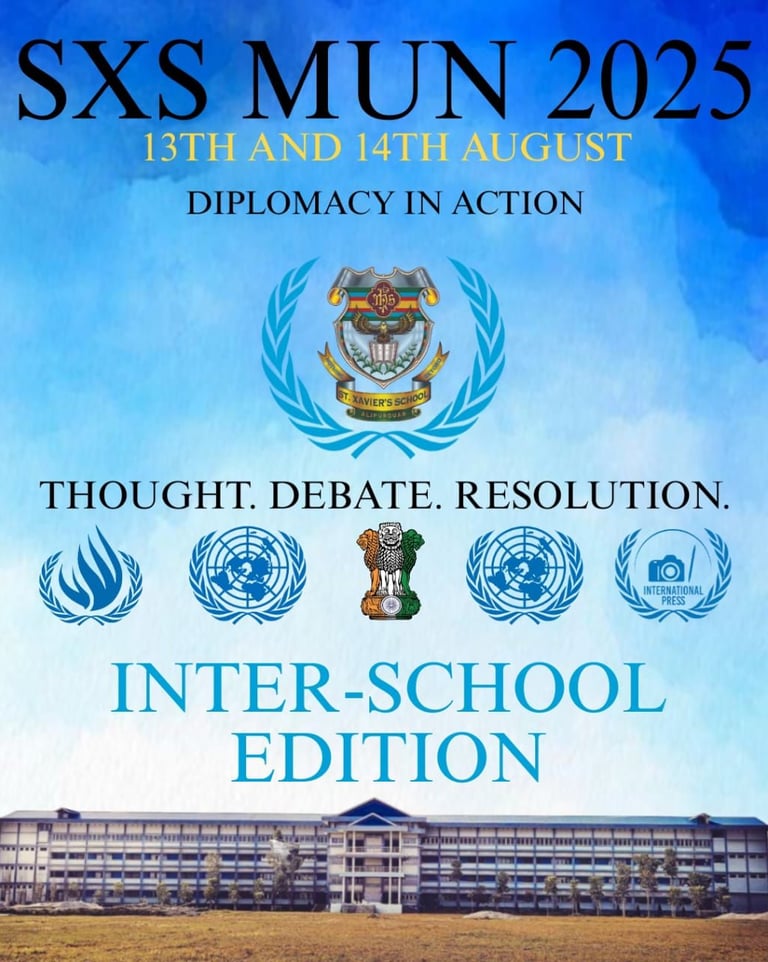

When did St. Xavier’s MUN start, and how has it evolved?
Our MUN journey began in 2022 as a modest yet ambitious event, organized by a dedicated team of teachers and student volunteers. Since then, it has grown each year — attracting more participants, introducing new committees and themes, and becoming an annual highlight on the school calendar. What started as an experiment is now a celebrated tradition that reflects the spirit of inquiry and dialogue that we value as a school.
Who can participate, and do I need prior experience?
MUN at St. Xavier’s welcomes students mainly from Classes VII to XII. However, enthusiastic students from lower classes may occasionally be invited to participate as observers or junior delegates. No previous MUN experience is required. Every year, the school organizes orientation sessions, workshops, and mock debates to help new participants understand the procedures, improve public speaking skills, and learn how to research their assigned country’s policies.
What do students actually do during MUN?
As delegates, students are assigned a country or organization and placed in committees such as the General Assembly, Security Council, or specialized committees based on the chosen themes. Delegates research the committee topics, prepare speeches, and debate to represent their country’s stance. The process includes formal debates, informal discussions (caucuses), writing draft resolutions, and voting. Through this, students learn to articulate arguments clearly, listen respectfully, and negotiate compromises.
Why should I consider joining MUN?
Participating in MUN is about much more than winning awards. It helps develop essential life skills:
Research & Critical Thinking: Understanding global issues deeply and analytically.
Public Speaking: Gaining confidence to express ideas clearly and persuasively.
Negotiation & Leadership: Learning to build consensus and lead teams.
Empathy & Open-mindedness: Appreciating diverse perspectives and cultures.
Writing & Organization: Drafting position papers and formal documents.
These skills are invaluable, whether you choose to study humanities, sciences, or any other field.
Is St. Xavier’s MUN competitive? Are there recognitions?
While the spirit of MUN is primarily educational, healthy competition is part of the experience. The conference concludes with awards like Best Delegate, High Commendation, and Special Mention for those who demonstrate exceptional preparation, diplomacy, and leadership. However, what matters most is the learning journey, the friendships built, and the new perspectives gained.
How can I prepare if I’m interested?
Attend the pre-MUN workshops and mock sessions conducted by the school.
Research your assigned country or organization thoroughly, focusing on its policies related to the committee topics.
Write a Position Paper, summarizing your delegation’s stance.
Practice speaking clearly, listening actively, and thinking on your feet.
Teachers, senior students, and MUN alumni are always ready to help newcomers.
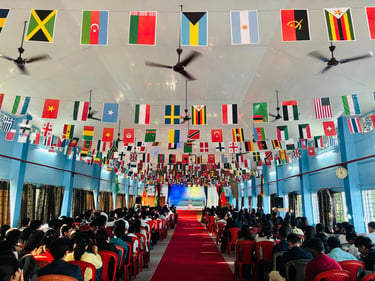
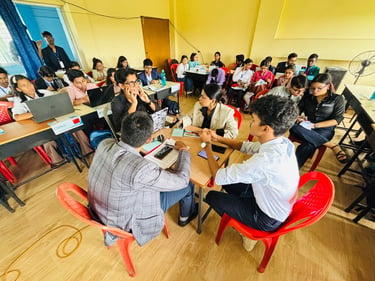
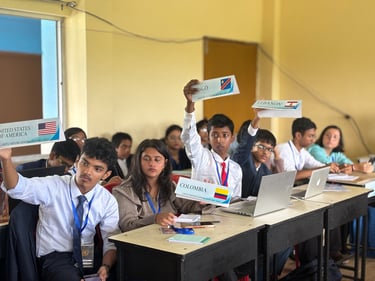
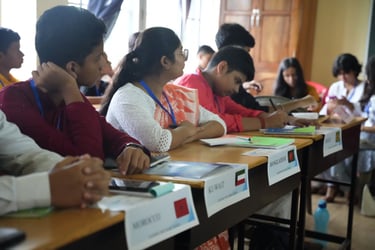
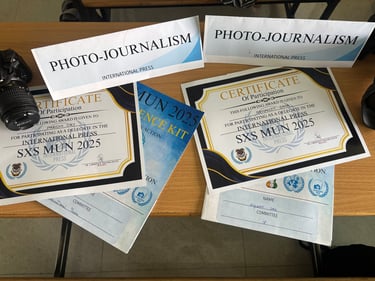
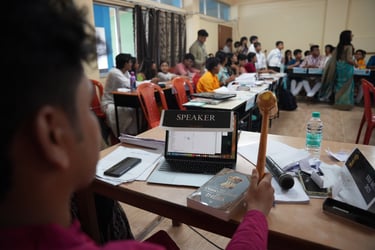
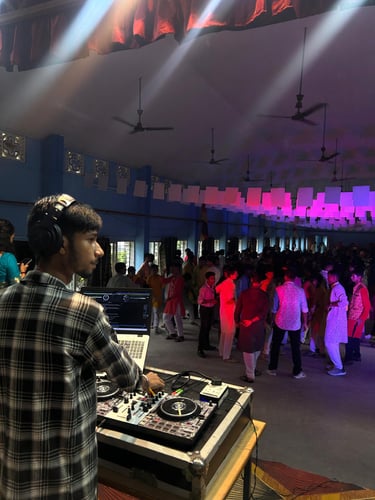
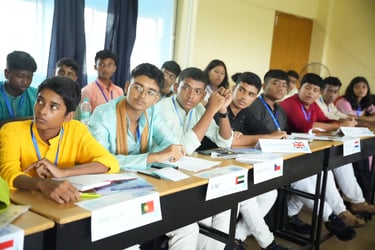
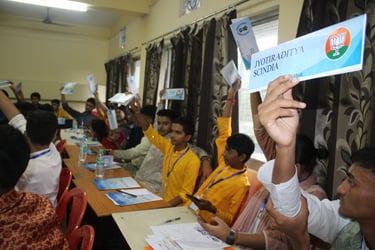









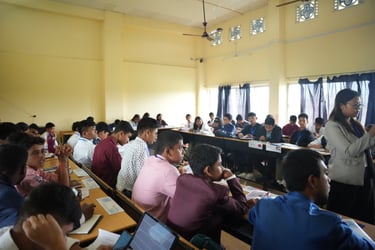
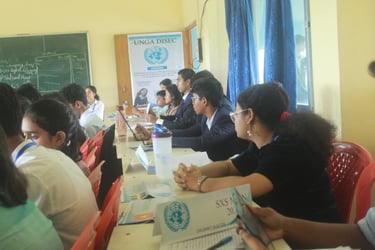
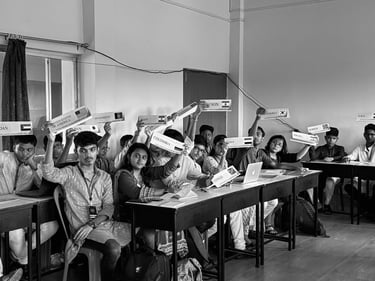
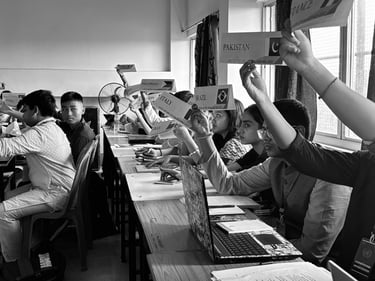
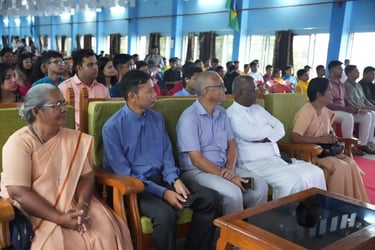
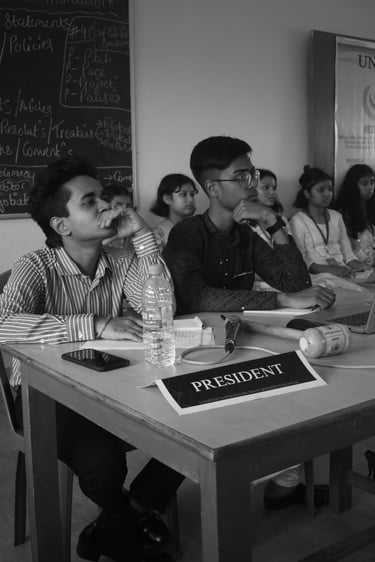
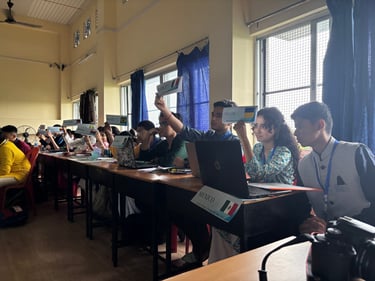







Whom to Contact if I Want to Participate in SXS MUN 2025?
You can reach out to any of the following organizing members for guidance and registration:
Anand Pradhan (MUN Coordinator)
📞 +91 70630 80916
Samriddha De (Director General)
📞 +91 97494 35856
Aritra Das (Secretary General)
📞 +91 90830 21031
Address
Uttar Panialguri, P.O. Majherdabri, Alipurduar, West Bengal - 736123 CISCE Affiliation Code: WB 398 | U-DISE CODE: 19220214601
Contacts
Office: +91 95476 23713
Principal: +91 95475 55125
Administrator: +91 70472 84599
E-mail: sxsalipurduar@gmail.com
Website: www.stxaviersalipurduar.com
Subscribe to our newsletter
© 2025 - St Xavier's School, Alipurduar. All rights reserved.
Follow Us:
Scan to download our School's App



